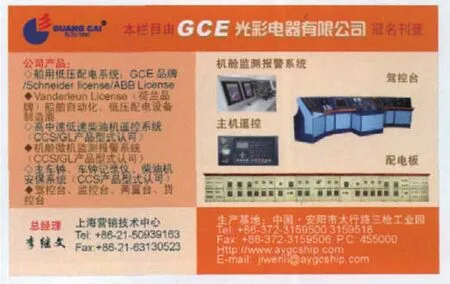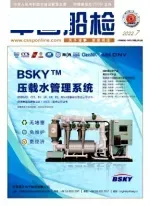目标型公约是大势所趋?
邱 奇
目标型公约是大势所趋?
邱 奇

从国际海事立法的发展趋势看,目标型标准(GBS)理念的发展和成熟,将对国际海事公约制订产生革命性影响,“目标导向型”或将成为未来国际海事公约的发展趋势。届时,世界范围内的各类组织和专家将不局限于具体的实现标准和方法,只需要在共同的目标上达到一致认同,就可避免由于技术垄断给实施公约造成的障碍。国际海事公约的目标型推进将给国际海事公约发展带来一场立法理念上的深刻变革。
引入“目标型”理念
20世纪90年代以来,国际海事组织(IMO)和国际船级社协会(IACS)制定和出台了一系列旨在提高船舶结构安全和环保性能的国际新公约。过去的十年里,更是频频出台了有重大影响的多个公约。在此过程中,一些西方发达国家坐收渔利,直接兑换了大量利益;而一些发展中国家却在其中付出了较大的经济代价,始终不能摆脱其在技术领域对发达国家的长期依赖。因此,IMO的部分公约长期遭受发展中国家的质疑和诟病,这也成为羁绊其发展的一个很棘手的障碍。
2002年11月,IMO MSC(Maritime Safety Committee,海上安全委员会)第78次会上提出目标型标准(Goal Based Standard, GBS)的概念。起初这个概念用于船舶建造, 但该理念完全可以应用于所有国际海事公约的制订过程,由目标型标准引出目标型公约。《2006年海事劳工公约》中的“实质等效”原则即体现了目标型公约的思想。GBS的出现已经为国际海事公约的制定进程指明了前进方向。
在公约制定过程中引入目标型理念后,公约不再以描述具体的操作标准和要求为出发点,而是在更高层次上提出公约的总体目标和功能要求;操作层面的具体标准由缔约国根据总体目标和功能要求来制定,通过这种方法制定的公约就是目标型公约(Goal Based Convention)。
目标型公约将由三个层次构成。总体目标层,即规定公约所要达到的目标;功能层,即规定达到公约要求的目标所需要的功能及实现要求;指导层,即具体规定各缔约国如何实施问题协调、跟踪、验证、报告、认可、评估等等。在目标型公约框架下,各缔约国可以制定具体的达到公约目标的国家规范和行业标准。与描述型公约相比,目标型公约着重的是目标的实现,更追求宏观控制。
殊途同归
虽然各国在“航行更安全,海洋更清洁”的追求中目标一致,但因为各国都有自己具体的不同的实际情况和要求,所以在具体的操作层面达成一致也是越来越难。而目标型公约只给各国提供一个总体目标和功能要求,各国可以充分发挥主观能动性和创造性,充分利用各自优势适应公约要求。
长期以来,发展中国家在技术领域的被动局面有目共睹;同时,部分国际公约的标准也大大超出了一些国家的实际情况,一些国际海事公约的实施并不尽如人意。目标型公约将“百家争鸣、百花争艳”,在全球形成良性的国际海事技术竞争机制,从而彻底解决发达国家长期技术垄断的问题。另一方面,目标型公约增加了公约的可实施性。国际海事公约的目标是保障海上船舶和人命安全、保护海洋环境。从现行的国际海事公约看,都是从具体的标准要求层面来规定缔约国如何实施公约达到这些目的,大大降低了公约的灵活性,甚至可以说直接造成公约缺乏普遍可操作性;而目标型公约犹如在一场赛跑中只设定目标和要求,至于达到终点的方式可自由选择。这就增加了公约的灵活性和可操作性,也就大大增加了其可实施性。
大势所趋
目标型公约令未来的国际海事发展蓝图无限美好,但在如何合理确定目标型公约目标和功能、如何验证缔约国是否满足公约的要求等方面还有很多问题。目标型公约中最重要的就是目标和功能,它是公约制定过程中的核心工作。由于各国发展水平和文明程度的不同,如何合理确定目标型公约目标和功能将是各国关注的焦点。用什么样的方法去确定、什么样的目标和功能最合理,尚需进一步研究和探讨。同时,目标型公约只是提出总体目标和功能要求,具体的操作由各缔约国以自己的方式去实现,但是缔约国的做法是否满足公约要求、以什么样的方法去验证和评估,需有详细规定,有待研究和协商。
中国是一个发展中国家,在国际海事履约中始终缺乏主动权。那么,在“目标型公约”的制定进程中,中国应该积极主动地参与到目标型公约的制定和推动工作中去,发挥我国作为国际海事组织A类理事国的作用和影响力。那么,我们应该怎么做?首先,做好各类高素质海事人才的培养和储备。未来关于目标型公约的谈判将会异常激烈,海事英语、国际公约研究、技术研究和开发、海事管理、船舶运营管理等优秀的海事人才必不可少,笔者建议在国内航海院校内设立国际海事公约与海事英语专业培养海事人才;其次,在海事局内部成立一个稳定的国际海事公约和法规部门,长期跟踪和研究海事公约,及时应对国际海事公约和技术发展的新动向。再次,积极加强对国际海事技术发展的研究。建议由中国海事局牵头建立“中国国际海事公约数据库”,结合船级社和相关公约研究中心,对国际公约及其修正案进行分类整理并及时更新。该“数据库”提供国际海事公约的前沿与发展趋势、国际海事技术的发展动态、最准确和及时的公约及其修正案信息以及专业的评析等;同时制定鼓励技术研究和开发的政策和制度,在国内形成一个良好的国际海事技术研究氛围。

In November 2002, the concept of Goal Based Standard (GBS)was proposed at the 78th IMO MSC meeting. The principle of“essence equivalence” in Maritime Labor Convention 2006 reflects the thought of goal based convention. The emergence of GBS has pointed out the direction for the development of formulation of international maritime conventions.
Goal based convention makes the blueprint for the future international maritime development glorious. However, there are still some problems with regard to how to define the reasonable objective and function for goal based convention, and how to verify compliance with convention requirements by signatory countries. Objectives and functions are the most important for goal based conventions and are the central work in the development of conventions. Due to the difference of development and civilization between various countries, how to set up the reasonable objectives and functions for goal based conventions has become the focus of attention. Further research and study are still needed as to the method to be used to set up objectives and functions, and as to what kind of objectives and functions is the most reasonable.Meanwhile, goal based convention proposes only the general objectives and functional requirements, it is left to the signatory countries to realize them using their own methods. But, research and consultation as well as detailed requirements are needed to decide whether the signatory countries comply with conventions as well as the verif i cation and assessment methods.
China is a developing country and is always lack of initiative in international maritime implementation. China should actively participate in the development and promotion of goal based conventions and exercise the role and influence of China as a Category A member state of IMO council. What should we do then? Firstly, to train and reserve all kinds of maritime talents of high qualif i cations. Secondly, to establish a stable department of international maritime conventions and regulations within the structure of maritime administration to keep track of and study maritime conventions, and to address timely the new trend of international maritime conventions and technical development. Thirdly, to strengthen the study of the development of international maritime technology. It is proposed to set up “China International Maritime Convention Database” with China MSC as the lead to categorize, manage and update international conventions and the amendments together with CCS and convention study centers. This “Database”provides the development trend of international maritime conventions and international maritime technology,the most accurate and updated conventions and their amendments and professional analysis. It also sets up policies and systems to encourage technical study and development to foster a fairly good atmosphere in the nation for international maritime technical research.
Will Goal Based Convention Be the Trend?
By Qiu Qi

